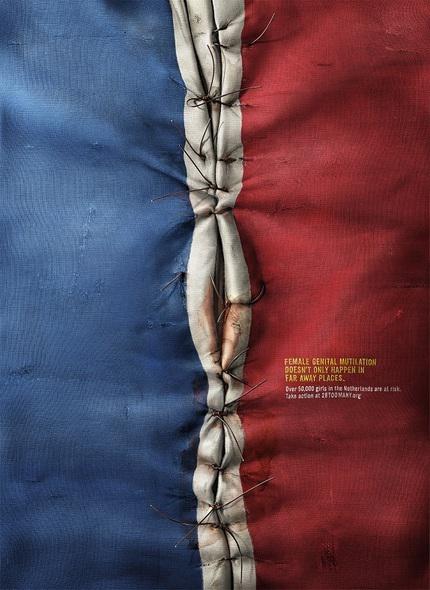An association launched an awareness campaign on a practice that affects 130 million women in many countries.

Excision is not a phenomenon reserved for a few distant countries. This is the message that the association wanted to convey 28 Too Many in a shocking campaign, where the visual matches the strength of the message. We see flags of European countries that we can guess torn, then roughly stitched up to recall excision.
The purpose of these posters is to make developed countries aware of the dangers of this scourge. Nearly 130 million women around the world are affected, according to the WHO. Excision consists of a total or partial removal of the clitoris and the labia minora.

Legal in 29 European countries
“Each year, three million women and girls are exposed to the risk of excision in Africa, North America, South America, Australia, Asia, the Middle East and in many European countries”, recalls the association on its website. In France, there are nearly 50,000 excised women. This practice is legal in 29 African countries.
It is for this reason that many European flags were used for this campaign (France, United Kingdom, Sweden, Italy…), in order to show that the problem is much more global than it seems. .
In 2013, UNICEF advised, in a report, to highlight these practices to shock public opinion, but also to allow a change of mentality in the communities concerned.
In addition to the very difficult psychological aspect of this mutilation, the physical injuries are also very real following excision. Some young girls are victims of violent hemorrhages, even infections that can lead to sterility.
European countries react
Some European countries such as Spain have already tackled the problem head-on since a health action protocol had been put in place by the authorities to protect the 17,000 little girls likely to be affected on the site. Spanish territory.
In addition, parents who are planning a trip to their country of origin, had to sign a paper that commits them not to undergo surgery on their child. A medical examination is even scheduled upon return from the stay. Offenders run the risk of legal action.
.















